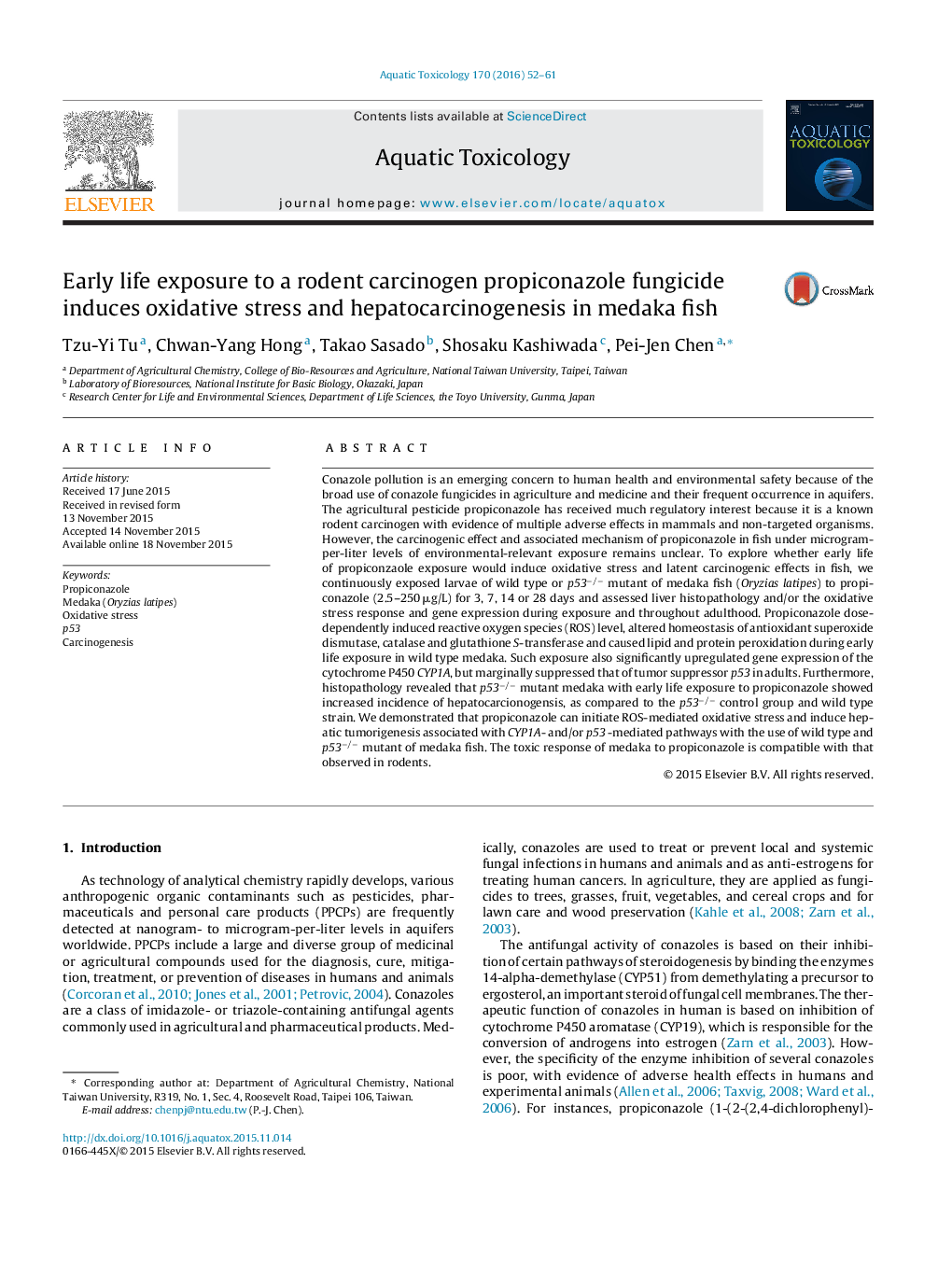| کد مقاله | کد نشریه | سال انتشار | مقاله انگلیسی | نسخه تمام متن |
|---|---|---|---|---|
| 4528966 | 1625935 | 2016 | 10 صفحه PDF | دانلود رایگان |

• Propiconazole initiates ROS-induced oxidative stress and damage in medaka fish.
• Early life exposure to propiconazole increases incidence of hepatocarcionogensis in p53−/− medaka.
• Oxidative stress and CYP induction involved in p53 regulation are key events in propiconazole-induced hepatotumorigenesis.
• Propiconazole-induced toxic response in medaka is compatible with that in rodents.
Conazole pollution is an emerging concern to human health and environmental safety because of the broad use of conazole fungicides in agriculture and medicine and their frequent occurrence in aquifers. The agricultural pesticide propiconazole has received much regulatory interest because it is a known rodent carcinogen with evidence of multiple adverse effects in mammals and non-targeted organisms. However, the carcinogenic effect and associated mechanism of propiconazole in fish under microgram-per-liter levels of environmental-relevant exposure remains unclear. To explore whether early life of propiconzaole exposure would induce oxidative stress and latent carcinogenic effects in fish, we continuously exposed larvae of wild type or p53−/− mutant of medaka fish (Oryzias latipes) to propiconazole (2.5–250 μg/L) for 3, 7, 14 or 28 days and assessed liver histopathology and/or the oxidative stress response and gene expression during exposure and throughout adulthood. Propiconazole dose-dependently induced reactive oxygen species (ROS) level, altered homeostasis of antioxidant superoxide dismutase, catalase and glutathione S-transferase and caused lipid and protein peroxidation during early life exposure in wild type medaka. Such exposure also significantly upregulated gene expression of the cytochrome P450 CYP1A, but marginally suppressed that of tumor suppressor p53 in adults. Furthermore, histopathology revealed that p53−/− mutant medaka with early life exposure to propiconazole showed increased incidence of hepatocarcionogensis, as compared to the p53−/− control group and wild type strain. We demonstrated that propiconazole can initiate ROS-mediated oxidative stress and induce hepatic tumorigenesis associated with CYP1A- and/or p53 -mediated pathways with the use of wild type and p53−/− mutant of medaka fish. The toxic response of medaka to propiconazole is compatible with that observed in rodents.
Journal: Aquatic Toxicology - Volume 170, January 2016, Pages 52–61